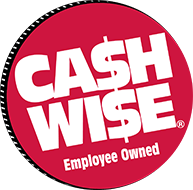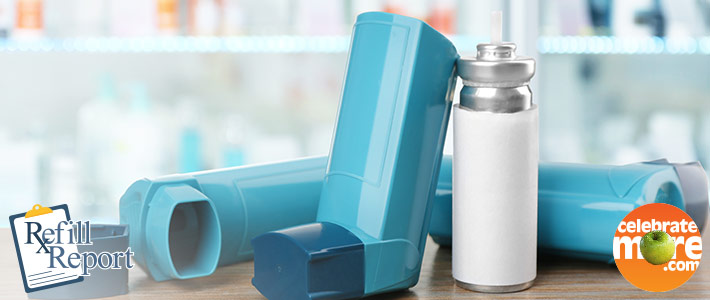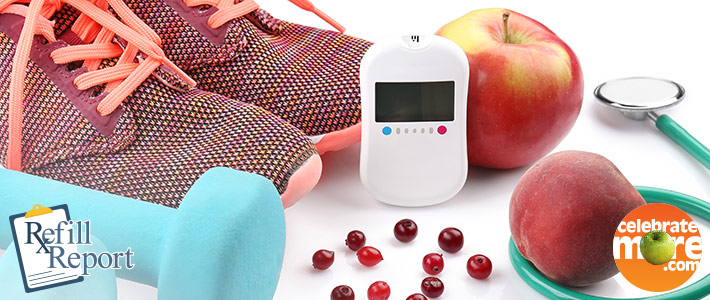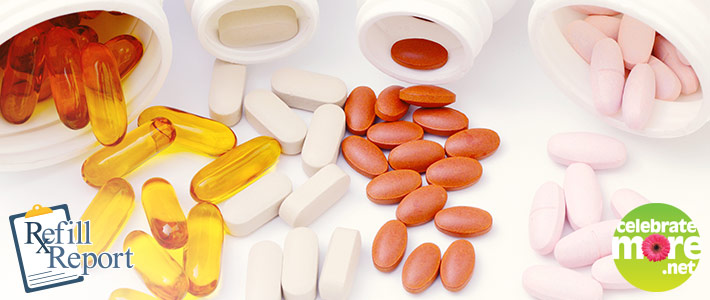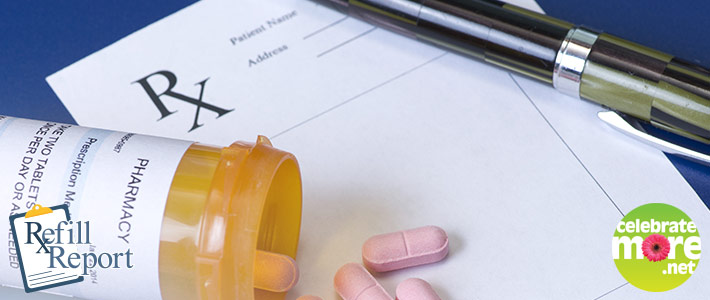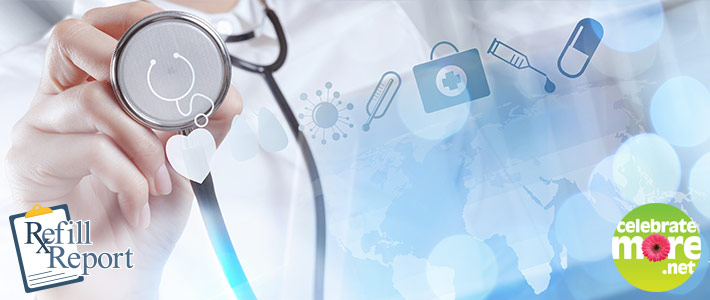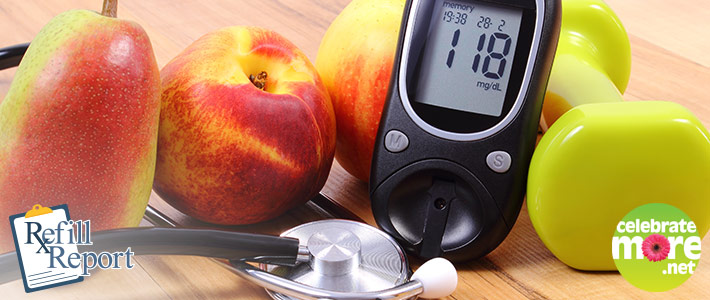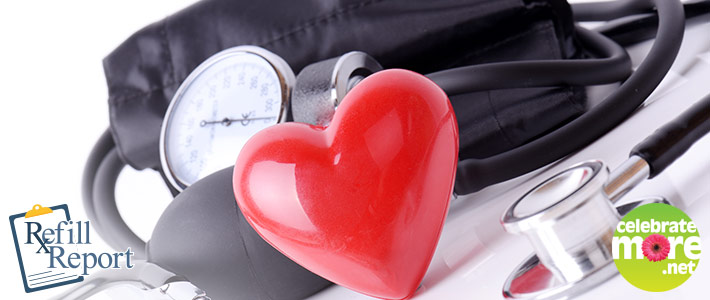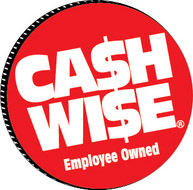
Jason
Pharmacy Education for your Family
Jason graduated from the University of Minnesota College of Pharmacy in 2011 and has been working for Coborn’s, with a passion for patient care, ever since. After heading up programs focused on diabetes education and smoking cessation in the Clearwater pharmacy, he now works as our Pharmacy Clinical Program Manager at our home office focusing on ways to improve care for patients at all of our locations. Jason has four daughters at home that keep him busy when he’s not at work.
Pharmacy
November 3, 2020Medicare Plan Selection
Greetings all. What happened to Fall, how did we go straight from Summer to Winter? Hopefully everyone is adjusting to the change in weather and being safe with the return to school for many. We have another guest blogger this month, let me introduce to you Larissa.
Hi everyone, my name is Larissa Yehle, I am the current Community Pharmacy Resident with Coborn’s and I wanted to talk to you this month about Medicare open enrollment because it is that time of year again– open enrollment for Medicare.
What is Medicare anyways? Medicare is a federally-funded health insurance program. Eligibility requirements for Medicare are below;
Must be an American citizen living in the USA 65 years of age or older.OR
Under 65 years of age with one of the following conditions.
Receive Social Security disability insurance for at least 24 months
Have End-Stage Renal Disease
Have amyotrophic lateral sclerosis (ALS)
Receive Railroad Retirement Benefits
We know picking a plan can be stressful and lead to sleepless nights and big headaches. There are several different options and so many different terms, which becomes overwhelming in a matter of seconds. It DOESN’T have to be this year though, let us help you! Coborn’s offers a user-friendly, plan selection resource on the Coborn’s pharmacy webpage (www.medicareusa.com/coborns). This tool helps guide you into selecting the plan that is best for you. The website can actually auto-populate with your specific drugs that you are on with the use of your unique Customer ID. You can get your unique Customer ID by calling us at the pharmacy or using the 1-800 number listed on the website.
With the use of your ID, you can compare, buy, and save on Medicare Advantage and Part D plans right on the website. It does a great job at explaining the different terms and type of plans available, and even has 1 on 1 support available to each of you when needed. We value your business and loyalty and want to make sure you are informed of the ins and outs of the different Medicare plans. Unfortunately, in the past, there have been times where a patient does not realize that based on the plan they chose, they can no longer fill their prescriptions with their preferred pharmacy. There are certain restrictions on some of the plans available and we want to ensure that you can continue to use Coborn’s pharmacy based on the insurance plan you choose.
Feel free to ask any pharmacy member for more information on the Medicare Plan Selection resource. [...]
Read more...
August 10, 2020Essential Oils: Useful or Harmful?
We have another guest blogger, introducing Tifany Steentra….Tifany is a Student Pharmacist from NDSU spending a couple weeks with us at our main office. Tifany wanted to share some information around the use of Essential Oils.
The use of essential oils are becoming more popular as a natural alternative to medicine, but the effectiveness and safety are unclear.
Essential oils have been around for thousands of years. They were used in religious ceremonies, added to cosmetics, used in traditional medicine, and added to various items for the aroma of the oils. 1
They were first recorded in ancient Egypt, India, and Persia. At the time, these oils were prepared by placing the flower, leaves, or roots in fatty oils. It wasn’t until the Golden Age (500 to 300 BC) that Arab culture developed the first distillation process for essential oils. 1
People have been claiming essential oils are natural alternatives for many different ailments, but what really is an essential oil? Essential oils are plant extracts made by steaming or pressing the plant’s flowers, bark, leaves, or fruit. When inhaled, the molecules of the oils travel from the olfactory nerves, the nerve fibers relating to the sense of smell, straight to the brain. The brain then sends a signal to the amygdala, the center of the brain responsible for emotions.2
Due to the lack of regulation, the quality of these oils vary on the market between different companies. Some essential oils are purer than others, which can be diluted with less expensive ingredients, therefore ingestion is not recommended. 2
Lavender is one of the most used essential oils and is claimed to be an effective sleep aid. A clinical trial was conducted on seventy-nine college students with self-reported sleep issues. This trial studied the effect of inhaled lavender on sleep hygiene. The patients using lavender demonstrated a significant improvement in sleep quality compared to the controlled group at post-intervention and at the two week follow up. However, it did not show a significant difference in sleep quantity.3
Peppermint is another commonly used essential oil. This oil is generally used to improve nausea and vomiting. A clinical trial was conducted to test the effect of peppermint oil aromatherapy on the severity of nausea and vomiting in pregnancy. The severity of nausea and vomiting in the pregnant population and the controlled group significantly decreased, but there was not a statistically significant difference between the two groups. 4
These essential oils may show improvement in some instances, however that does not exclude them from having side effects or drug-drug interactions.
Lavender oil can cause an unusual side effect called reversible prepubertal gynecomastia in 7-10-year-old male patients. Prepubertal gynecomastia refers to the growth of breasts in this younger population of males. After discontinuing lavender use in these patients, the abnormal defects disappeared. 5
Lavender oil may also cause drug-drug interactions. These interactions are said to be caused by the activation of a couple receptors (GABAa and H3 receptors) that certain medications commonly bind to. If these medications cannot bind to the receptors, they will stay in your system, which could decrease their efficacy and increase your risk for side effects.6
The most common side effect of peppermint oil is the exacerbation of heartburn symptoms. Peppermint may also increase the risk of bronchospasms, tongue spasms, or even respiratory arrest in children, and therefore should be avoided. There is also a significant amount of drug interactions with the use of peppermint oil due to its inhibition effects on an enzyme called CYP1A2. This enzyme is used to break down certain medications. If these medications cannot be broken down appropriately, it can increase your chances of experiencing dangerous side effects.7
Overall, it can be concluded essential oils have been shown to be effective for some uses and are relatively safe for adults. However, they have been shown to cause adverse reactions and drug interactions, therefore they should be used with caution. The use of any natural supplement should be discussed with your pharmacist or doctor to ensure it is safe to be taken with your other medications. Studies are currently being done to investigate further uses and safety. The next question is, will essential oils be a part of the future of healthcare?
REFERENCES
1. Essential oil Plant Substance. Britannica . Available from: https://www.britannica.com/topic/essential\oil 2. Gujral H. Aromatherapy: Do Essential Oils Really Work? John Hopkins Medicine . Available from: https://www.hopkinsmedicine.org/health/wellness\and\prevention/aromatherapy\do\essential\oils\really\work 3. Lillehei AS, Halcón LL, Savik K, Reis R. Effect of Inhaled Lavender and Sleep Hygiene on Self\Reported Sleep Issues: A Randomized Controlled Trial. J Altern Complement Med. 2015 Jul; 21 (7):430-8. Doi: 10.1089/acm.2014.0327. Epub 2015 Jun 2. PMID: 26133206; PMCID: PMC4505755.
4. Joulaeerad N, Ozgoli G, Hajimehdipoor H, Ghasemi E, Salehimoghaddam F. Effect of Aromatherapy With Peppermint Oil on the Severity of Nausea and Vomiting in Pregnancy: A Single\blind, Randomized, Placebo\controlled trial. J Reprod Infertil. 2018; 19(1):32-38 PMCID: PMC5960050
5. Henley DV, Lipson N, Korach KS, Bloch CA. Prepubertal Gynecomastia Linked to Lavender and Tea Tree Oils. N Engl J Med. 2007 Feb; 356:479-485. Doi: 10.1056/NEJMoa064725
6. Koulivand PH, Ghadiri MK, Gorji A. Lavender and the Nervous System. Evid Based Complement Alternat Med. 2013; 2013: 681304. doi:10.1155/2013/681304. Epub 2013 March 14. PMID: 23573142; PMCID: PMC3612440
7. Kligler B, Chaudhary S. Peppermint Oil. Am Fam Physician. 2007 April 1; 75970:1027-1030 PMID: 17427617 [...]
Read more...
June 30, 2020Your Pharmacist Can Now Play an Even Bigger Role in Helping You Quit Smoking
Greetings all. We have another guest blogger for you, Courtney Ackerman is a Pharmacy Student from NDSU who is with us for a learning experience. She will share an update to pharmacy practice that will hopefully help many Minnesotans have easy and affordable access to product that help them quit smoking. Take it away Courtney…
Cigarette smoking and tobacco use are the leading causes of preventable deaths and diseases in the United States. According to America’s Health Rankings, the Minnesota Department of Health, and the CDC, smoking is responsible for greater than 480,000 deaths per year in the U.S., with over 6,000 of those deaths being Minnesotans. On average, people who smoke will live 10 years less than nonsmokers.
It takes many people 30 or more attempts to quit before successfully doing so. It is important to understand this and to not become discouraged after a few unsuccessful attempts. A local pharmacist may be a great source of information and aid in a smoker’s attempt to quit. There is health benefit to quitting at any age – yes, even lifelong smokers.
Soon, access to smoking cessation products will be more accessible and potentially less costly to those wishing to quit. Effective August 1, 2020, Minnesota legislation has authorized pharmacists to prescribe nicotine replacement therapy (NRT) medications provided they follow a protocol developed by the Board of Pharmacy, complete appropriate training programs and continuing education, and provide appropriate counseling and information to patients. NRT consists of nicotine patches, lozenges, chewing gum, nasal sprays, and inhalers used as aids to help stop the continuing use of cigarettes or tobacco products.
With this new provision, a pharmacist will be able to write a prescription for any of the above NRT medications, therefore allowing it to be ran through a patient’s prescription insurance. These products have been and are available over the counter but can be costly. With the pharmacist’s ability to now prescribe and apply insurance to NRT products, the associated cost to the patient will likely decrease. Most insurance companies will cover NRT as they see benefit in overall health upon smoking cessation. Also, many federal laws do require most health insurance plans in the U.S. to cover some level of smoking cessation products and treatments. Coverage will be dependent on individualized plans, but again, many do cover the entire cost of NRT due to the health benefits and long-term effects of quitting cigarette or tobacco use.
The pharmacist will be able to provide patients who are looking to quit smoking with proper recommendations concerning product, dosage, and duration. The pharmacist may also be able to provide support to the patient to help overcome any barriers, as nicotine is very addictive and smoking cessation can be a process. Relapse is common, but it is important to never give up. Talk to your local pharmacist today if you are or have ever thought about wanting to quit, they can help set you up for success. Thank you for letting me share this information on the blog! [...]
Read more...
March 6, 2020Coronavirus Disease (COVID-19) Updates
Greetings everyone, I hope you all are getting a chance to enjoy our unseasonably warm weather. This month we will have a guest blogger, one of our Pharmacy Students that is with us for a few weeks for a learning experience.
Hi, my name is Iryna. I am a pharmacy student at the University of Minnesota College of Pharmacy. I am currently on rotation at Coborn’s Pharmacy in St. Cloud, MN. It is my pleasure to have the privilege to write a pharmacy blog entry for this month.
There are a lot of discussions about a new coronavirus outbreak. Some of you may have heard that the World Health Organization declared it a “public health emergency of international concern.” It is important to understand how this virus can spread and what we can do to protect ourselves and people around us.
What is a novel coronavirus? The new coronavirus, also known as SARS-CoV-2, belongs to a group of coronaviruses. They are often seen in animals such as cattle, cats and bats. It is possible that the new coronavirus was spread from animals to humans. The person-to-person transmission has been reported. The virus originated in China and has now spread to other countries.
What is the current situation in the U.S.? As of March 5, 2020, the CDC reports 100 confirmed cases and 11 deaths related to COVID-19. Additionally, 49 patients who were repatriated from Wuhan, China and Diamond Princess Cruise Ship to the United States were tested positive.
How does coronavirus spread? Person-to-person spread is most likely when an infected person sneezes or coughs and another person breathes in the respiratory droplets. It is also possible to get this infection when a person touches the surface that has the virus on it and then touches their mouth, nose or eyes. People are contagious when they have the most symptoms. However, they may be contagious before symptoms even develop.
What are the symptoms? The symptoms of fever, cough and shortness of breath may develop from 2 to 14 days after the exposure. The symptoms may vary from mild and moderate to severe.
What are the prevention measures? Multiple companies are working on the development of a vaccine for coronavirus disease (COVID19), however there is no vaccine currently available. To prevent being infected:
Avoid close contact with sick people
Stay home when you are sick
Do not touch your mouth, nose, and eyes
Cover your cough and sneezes
Wash your hands often with soap and water for at least 20 seconds. An alcohol-based sanitizer with at least 60% alcohol may be used as well.
Clean and disinfect surfaces that are often touched
Wear a face mask if you are sick or care for a sick person
Stay up-to-date on your immunizations
Practice healthy lifestyle habits
How is coronavirus disease treated? There is no specific medication to treat the actual coronavirus. Current treatment includes supportive care to relieve symptoms and to support organ functions.
What should I do if I think I may be infected? To help prevent the spread of coronavirus, follow these steps:
Notify your provider immediately
Stay at home unless you are going to get medical care and avoid any public places
Stay away from other people and animals in your home (separate room and bathroom are preferred)
Do not share household items such as glasses, dishes, and utensils with others
Wear a facemask if available
Clean your hands often
Cover your mouth and nose if you cough or sneeze
Monitor your symptoms
Clean surfaces that are often touched such as doorknobs, tabletops, and phones, etc.
May I travel? Check travel advisories prior to traveling internationally. You may also want to discuss your travel plans with your provider. As of March 5th, travel advisories are issued for China, Iran, Italy, South Korea, and Japan. The updates can be found on the CDC website.
What should I buy to prepare for a potential outbreak? If an outbreak occurs, it will be important to avoid crowded places. Having some of the following items at home would be helpful:
A supply of nonperishable food items (chicken or vegetable broth, crackers, and hydrating drinks, etc.)
Essential household items (laundry detergent, cleaning wipes, and hand soap etc.)
A supply of essential medications (pain relievers, fever reducers, decongestants, cough and cold medicines, etc.)
Should I wear a face mask? The CDC currently does not recommend wearing a face mask to prevent getting sick. This is because common surgical masks are not tight enough to prevent you from breathing in the droplets. However, it is recommended for a sick person to wear a mask which blocks the droplets from spreading. There are specialized masks, N95 masks, that filter 95% of airborne particles and are more effective compared to common surgical masks. However, they need to be fitted to work properly.
Helpful resources:
The Minnesota Department of Health:
https://www.health.state.mn.us/diseases/coronavirus/prevention.html
The Centers for Disease Control and Prevention:
https://www.cdc.gov/coronavirus/
National Association of Chain Drug Stores:
https://www.nacds.org/prepared/
The World Health Organization:
https://www.who.int/health-topics/coronavirus
Coronavirus: Safety and Readiness Tips by the American Red Cross:
https://www.redcross.org/about-us/news-and-events/news/2020/coronavirus-safety-and-readiness-tips-for-you.html
If you have any additional questions or concerns, please talk to any of our friendly Pharmacists.
Thanks Iryna! Great information.
Jason
Pharmacy Clinical Program Manager [...]
Read more...
May 17, 2019Asthma Awareness
Did you know that May is Asthma Awareness Month? Asthma is a chronic disease that affects the airways in your lungs (your airways carry air in and out of your lungs). For those that have asthma, the inside lining of their airways become sore, swollen and sensitive. When sensitive, they then react strongly to things that they are allergic to or find irritating. This reaction causes the airways to get even narrower and the lungs get less air… and lungs not getting air is obviously a bad thing!
Symptoms of asthma include
Wheezing
Coughing, especially early in the morning or at night
Chest tightness
Shortness of breath
Not all people who have asthma have these exact symptoms, and having these symptoms doesn’t necessarily mean that you have asthma. Doctors will diagnose asthma based on tests that gauge the strength of the lungs, a thorough medical history, and a physical exam. For those that have asthma, when their asthma symptoms become worse than usual, it’s called an asthma attack. Severe asthma attacks may require emergency care and they can even be fatal. Asthma is typically treated with two different kinds of medications: quick-relief medications to stop asthma symptoms and long-term control medicines to help prevent asthma symptoms.
We have been busy this month spreading the word about asthma and helping our patients better manage their asthma. Here are some of the things we have been doing in our stores and pharmacies;
Asthma Control Tests – A quick assessment of how well someone’s asthma is being managed
Asthma Action Plan Reviews – Making sure patients know what to do when not feeling well
Immunization Screenings – Patients with asthma should have flu and pneumonia vaccines
Wellness Wednesday Events – Hosted by our Pharmacists and Dietitians in select locations
Peak Flow Meters for sale – A tool to help assess asthma control
As always, stop by any of our pharmacies if you have questions about any of your inhalers or medications. Also, check out the Minnesota Department of Health’s asthma webpage. They have a ton of great resources and educational materials that are FREE!
Jason
Pharmacy Clinical Program Manager [...]
Read more...
April 24, 2019Let’s talk about CBD
Everyone has probably heard about the recent explosion of CBD products that seem to be popping up everywhere. I thought it was worth spending some time talking about all things CBD.
What is CBD?
CBD stands for cannabidiol, CBD is one of the ingredients in marijuana. The other, slightly more well known, ingredient is THC (tetrahydrocannabinol). THC is the psychoactive ingredient that gives recreational marijuana users the “high” associated with it, CBD is the anti-psychoactive ingredient that may (or may not) provide some benefit. The Cannabis plant can be grown in variants that have different amounts of each ingredient; those that are low in THC and high in CBD are called hemp, while those high in THC and low in CBD are called marijuana. Hemp is now legal for farmers to grow crops for fuel, fiber, clothing, etc. This has created the somewhat murky legal landscape of whether or not companies can produce over-the-counter items containing CBD.
Do CBD products even work?
Depending upon the definition of the current laws, companies may be able to make CBD products for consumer use as long as they have THC limits under 0.3%, and there are no recommended or approved doses of CBD. There seems to be some limited evidence that CBD products can be helpful for certain types of seizure disorders, evidence for other conditions (pain, anxiety, inflammation) is lacking. The FDA recently approved a prescription product containing plant derived CBD to treat 2 rare forms of seizures… it is licensed as a specialty medication only available from select pharmacies to the tune of about $35k per year, called Epidiolex. Because the CBD products showing up on shelves now are not regulated by the FDA, there is no guarantee that they are being produced at high standards or have the amount of the ingredients in them claimed. In a recent study of CBD product;
7 of 10 CBD products did not contain amount advertised (43% under, 26% over)
1 of 5 products contained THC over limits allowed (0.3%)
There are also reports of interactions between CBD and prescription medications that can result in elevated levels of the medications, and there have also been low rates of elevated liver enzymes.
Are CBD products legal?
According to a recent statement from the Minnesota Board of Pharmacy… no.
In summary, the sale of most products that contain CBD extracted from any type of cannabis plant and intended to be used to treat medical conditions or to alter the structure and function of human or animal bodies, remains illegal under both federal and state law. The exceptions would be FDA-approved drugs, such as the recently approved Epidiolex®, and the products allowed to be sold under state law by the manufacturers that are regulated by the Minnesota Department of Health, Office of Medical Cannabis.
We are still in the very early stages of figuring out medical marijuana use, recreational marijuana use, CBD containing products, and the rules/regulations around them. For now, most organizations are taking a wait and see approach regarding how to address them. As healthcare providers we can only preach caution as we have no legal ground to stand on yet.
Jason,
Pharmacy Clinical Program Manager [...]
Read more...
March 20, 2019Depression is a serious medical illness. It’s more than just a feeling of being sad or “down” for a few days. Depression occurs in more than 19 million teens and adults in the United States, and for them, the feelings do not go away, they persist and interfere with everyday life.
Although depression may occur only once during a lifetime, people typically have multiple episodes. During these episodes, symptoms occur most of the day, nearly every day and may include;
Feeling sad or “empty”
Loss of interest in favorite activities
Overeating, or not wanting to eat at all
Not being able to sleep, or sleeping too much
Feeling very tired
Feeling hopeless, irritable, anxious, or guilty
Aches or pains, headaches, cramps, or digestive problems
Thoughts of death or suicide
Depression is a disorder of the brain. There are a variety of causes, including genetic, biological, environmental, and psychological factors. Depression can happen at any age, but it often begins in teens and young adults. It is much more common in women. Women can also get postpartum depression after the birth of a baby. Some people even get seasonal affective disorder in the winter (can’t imagine that around these parts, right?).
Depression is a serious disorder that can take a terrible toll on you and your family. Depression often gets worse if it isn’t treated, resulting in emotional, behavioral and health problems that affect every area of your life.
There’s no sure way to prevent depression. However, these strategies may help.
Take steps to control stress, to increase your resilience and boost your self-esteem.
Reach out to family and friends, especially in times of crisis, to help you weather rough spells.
Get treatment at the earliest sign of a problem to help prevent depression from worsening.
Consider getting long-term maintenance treatment to help prevent a relapse of symptoms.
If you feel depressed, make an appointment to see your doctor or a mental health professional as soon as you can. If you’re reluctant to seek treatment, talk to a friend or loved one, any health care professional, a faith leader, or someone else you trust. If you think you may hurt yourself or attempt suicide, call 911 or your local emergency number immediately.
The National Suicide Prevention Lifeline is 1-800-273-TALK (1-800-273-8255).
Sources:
mayoclinic.org/diseases-conditions/depression/symptoms-causes/syc-20356007
medlineplus.gov/depression.html
Jason,
Pharmacy Clinical Program Manager [...]
Read more...
February 13, 2019Did you know that heart disease is the leading cause of death for both men and women? To prevent heart disease and increase awareness of its effects, Coborn’s is proudly participating in American Heart Month.
This month we had ‘Wellness Wednesday’ events co-hosted by our pharmacists and dietitians
We also had PharmaSmart blood pressure machine hosted demo and enrollment expos at select locations
Patients are able to visit our pharmacies any time this month for free blood pressure checks, immunization screening (most with heart disease need flu and pneumonia vaccines), and resources from dietitians.
You can make healthy changes to lower your risk of developing heart disease. Controlling and preventing risk factors is also important for people who already have heart disease. To lower your risk:
Watch your weight, many of our locations have dietitian services to help you make healthy choices.
Quit smoking and stay away from secondhand smoke, talk to any of our pharmacists if you are interested in quitting smoking.
Control your cholesterol and blood pressure, check your blood pressure for free at any of our pharmacies.
If you drink alcohol, drink only in moderation.
Get active and eat healthy.
February 1st was national Go Red for Women Day, Go Red for Women is the American Heart Association’s national movement to end heart disease and stroke in women. This may be surprising, but heart disease is actually the No. 1 killer of women, causing 1 in 3 deaths each year. That’s approximately one woman every minute! Sixty-four percent of women who die suddenly of coronary heart disease had no previous symptoms. Because these symptoms vary greatly between men and women, they’re often misunderstood. Media has conditioned us to believe that the telltale sign of a heart attack is extreme chest pain. But in reality, women are somewhat more likely to experience shortness of breath, nausea/vomiting and back or jaw pain. Other symptoms women should look out for are dizziness, lightheadedness or fainting, pain in the lower chest or upper abdomen and extreme fatigue.
To learn more about heart disease visit the American Heart Association’s Website or talk to your local Pharmacist to see how we might be able to help you lower your risk for Heart Disease.
Jason,
Pharmacy Clinical Program Manager [...]
Read more...
January 14, 2019How to Properly Dispose of Your Medications
What do you do with your medications when they are expired or no longer needed? When your medications are no longer needed, they should be disposed of promptly. Patients and caregivers should remove expired, unwanted, or unused medications from their home as quickly as possible to help reduce the chance that others accidentally take or intentionally misuse the unneeded medicine, and to help reduce drugs from entering the environment. There are a couple options for you to consider when disposing of expired, unwanted, or unused medicines.
Your best choices for disposal of unused or expired medicines are:
Medicine take-back options
Disposal in the household trash
Medicine take-back options
These are generally the preferred way to safely dispose of most types of unneeded medicines. There are two main kinds of take-back options: periodic events and permanent collection sites.
Periodic events
The U.S. Drug Enforcement Administration (DEA) periodically hosts National Prescription Drug Take-Back events where temporary collection sites are set up in communities nationwide for safe disposal of prescription drugs. Local law enforcement agencies may also sponsor medicine take-back events in your community. Consumers can also contact their local waste management authorities to learn about events in their area.
Permanent collection sites
Another option for patients and long-term care facilities to dispose of unneeded medicines is to transfer these medicines to permanent collection sites. In your community, authorized permanent collection sites may be in hospital or clinic pharmacies, county offices and law enforcement facilities. Some authorized collection sites may also offer mail-back programs or collection receptacles, sometimes called “drop-boxes,” to assist patients in safely disposing of their unused medicines.
Disposal in the household trash with Deterra® Drug Deactivation System
Coborn’s, Cash Wise and Marketplace Foods offer the Deterra® Drug Deactivation System at all of its pharmacy locations. The Deterra® Drug Deactivation System is a drug disposal bag which gives patients a safe, convenient and affordable way to dispose of unused medications. The bags can be used to deactivate pills, liquids and patches. This process is as simple as filling the bag with the recommended amount of unused drugs, waiting 30 seconds, sealing the pouch and gently shaking it before disposing it in the trash. The bag contains activated carbon which firmly bonds to the drugs and renders them unusable. The Deterra® Drug Deactivation System helps ensure that unused drugs do not end up in the hands of anyone else. It also keeps pharmaceuticals out of landfills where the potentially dangerous/toxic chemicals could end up in nature.
If you have expired or unwanted medications that you need to dispose of, ask our Pharmacists where the nearest take back options are or if the Deterra bags would fit your needs. Thanks!
Jason,
Pharmacy Clinical Program Manager [...]
Read more...
December 19, 2018One of the most important parts of our jobs as Pharmacists is to help keep our patients, you, healthy. One of the ways we do that is to try and help patients take their medications the way they were intended; the right medication, at the right dose, and the right frequency. Adherence is a term used in healthcare that refers to the extent to which patients take medications as prescribed by their healthcare providers. It is estimated that poor medication adherence;
Costs the healthcare system around $290 billion each year
Accounts for approximately 125,000 deaths each year
Is responsible for 10-25% of all nursing home and hospital admissions
Approximately 69 million people in our country take three or more prescriptions per month, requiring multiple trips to the pharmacy. Many patients say they miss doses of their medication because they forget to refill their prescription before they run out.
We can reduce your trips to the pharmacy and hopefully improve your ability to take medications as prescribed through a medication synchronization (med sync) program now being offered by our pharmacies. Med sync allows you to pick up of all of your ongoing prescriptions at the pharmacy on a single, convenient day each month. Med sync is especially helpful for people who take multiple, monthly medications, such as those with chronic illness or the elderly, as well as caregivers or family members responsible for helping them manage their prescription refills.
Our med sync program also includes a proactive call a week before each of your appointments or “sync date” at the pharmacy, to review your synchronized medications, and make sure we are aware of any additions, changes, or deletions to your medications. Keeping your pharmacist aware of any changes to your medications resulting from doctor or hospital visits is important in maintaining optimal results from your prescriptions. Your pharmacy will then proactively refill your medications, relieving worries of missed refills or running out of your medications. You will build a relationship with your pharmacist that will help you take your medications properly and regularly, which leads to overall better health. Your appointment is also an ideal time to review other pharmacy-provided health services with your pharmacist, such as a review of your vaccine history to schedule any missing or due vaccinations.
Talk to any of our pharmacy staff today to get set up with Med Sync, start making things easier for yourself and let us help you stay well.
Jason Miller, Pharm. D.
Pharmacy Clinical Program Manager [...]
Read more...
November 7, 2018November is National Diabetes Awareness Month
November is here, that means that along with elections, we get to talk about diabetes again. Once again I’ll just provide a brief recap, or overview of diabetes, then highlight some of the things that we are doing in our pharmacies to help patients with diabetes.
What exactly is diabetes?
Diabetes is a progressive disease in which your body is unable to efficiently process sugar to use as energy. Your pancreas makes a hormone called insulin that is used to move sugar from your blood into your cells to use for energy or store for later. When you have diabetes, your body doesn’t make enough insulin or your cells don’t respond to insulin. When this happens, you are unable to get the sugar from your blood into your cells.
There are two main types of diabetes; Type 1 and 2. Type 1 diabetes (formerly known as insulin-dependent or juvenile diabetes) is caused when your own immune system attacks and destroys the cells in the pancreas that produce insulin. Type 2 diabetes is caused by your body not producing enough insulin or your body not responding to the insulin being produced, called insulin resistance.
Is diabetes that big of a problem?
The answer is YES! The most recent statistics reported by the Centers for Disease Control and Prevention (CDC) show that in 2015, it’s estimated that 9.4% (30.3 million) of the U.S. population had diabetes, 1 in 4 didn’t know they had diabetes. With numbers like this, diabetes is a growing epidemic. In the last 20 years, the number of adults diagnosed with diabetes has more than tripled as the American population has aged and become more overweight.
Are you at risk for developing prediabetes or type 2 diabetes?
You’re at risk for developing prediabetes or type 2 diabetes if you:
Are overweight
Are age 45 or older
Have a parent, brother, or sister with type 2 diabetes
Are physically active less than 3 times a week
Have ever had gestational diabetes (diabetes while pregnant) or given birth to a baby weighing more than 9 pounds
So what can you do to reduce your risk of developing prediabetes or type 2 diabetes?
Maintain a healthy weight
Lose weight if you’re overweight
Regular physical activity – 150 minutes per week
Eat healthier
How can we help?
We will be offering prediabetes screenings at our pharmacies through the month of November
We will also be offering free blood glucose testing at pharmacies this month
Having diabetes makes you more likely to contract Hepatitis B and Pneumonia. We offer immunizations for both at our pharmacies (don’t forget your flu shot)
Talk to our pharmacy staff about our PharmaSmart program to help monitor your blood pressure
Join our RX Savers club for access to affordable medications to treat diabetes
Free Glucocard meter and 50 count test strips for $9.99.
Dietitian approved, month-long diabetic menu and shopping lists
As always, stop by any of our pharmacies if you want any more information or help with your diabetes concerns. Thanks!
Jason Miller, Pharm. D.
Pharmacy Clinical Program Manager [...]
Read more...
October 18, 2018Antibiotics are medicines that fight bacterial infections. Used properly, they can save lives. But there is a growing problem of antibiotic resistance. It happens when bacteria change and become able to resist the effects of an antibiotic. Antibiotic resistance is one of the most urgent threats to the public’s health. Antibiotic resistant bacteria can cause illnesses that were once easily treatable with antibiotics to become untreatable, leading to dangerous infections. Antibiotic-resistant bacteria are often more difficult to kill and more expensive to treat. In some cases, the antibiotic-resistant infections can lead to serious disability or even death.
Overuse and misuse of antibiotics allows the development of antibiotic-resistant bacteria. Every time a person takes antibiotics, sensitive bacteria (bacteria that antibiotics can still attack) are killed, but resistant bacteria are left to grow and multiply. This is how repeated use of antibiotics can increase the number of drug-resistant bacteria. Antibiotics are not effective against viral infections like the common cold, flu, most sore throats, bronchitis, and many sinus and ear infections. Widespread use of antibiotics for these illnesses is an example of how overuse of antibiotics can promote the spread of antibiotic resistance. Smart use of antibiotics is key to controlling the spread of resistance.
To help prevent antibiotic resistance
Tell your healthcare professional you are concerned about antibiotic resistance.
Ask your healthcare professional if there are steps you can take to feel better and get symptomatic relief without using antibiotics.
Take the prescribed antibiotic exactly as your healthcare professional tells you.
Safely dispose of leftover medication.
Ask your healthcare professional about vaccines recommended for you and your family to prevent infections that may require an antibiotic.
Never skip doses.
Never take an antibiotic for a viral infection like a cold or the flu.
Never pressure your healthcare professional to prescribe an antibiotic.
Never save antibiotics for the next time you get sick.
Never take antibiotics prescribed for someone else.
Antibiotic resistance is a growing concern in the healthcare community, it will take a combined effort from providers and patients to help address this, following the tips above will certainly help. Thank you and be well!
Jason Miller, Pharm. D.
Pharmacy Clinical Program Manager [...]
Read more...
September 18, 2018School is back in session and fall is in the air, sad to see summer go but I sure do love this time of year. This month we have a guest blogger, Ben Varoga. Ben is a 4th year pharmacy student from NDSU who is doing a management rotation with us. Ben has also worked at our Cooper and Pinecone locations for the past few years and has some great information to share with you regarding the flu.
Flu Shot Season
Every year there is a lot of news coverage about flu vaccines and influenza in general. A lot of information out there can be misleading, and it is important to get accurate information. Influenza, or more commonly known as “the flu,” is an infectious disease caused by a virus. Some symptoms that you experience from this virus include a high fever, a runny nose, sore throat, muscle pains, a headache, coughing and feeling tired. The influenza virus can also lead to more serious problems including pneumonia, hospitalizations and in rare cases, death. Last flu season there were 6,446 hospitalizations attributed to the flu in Minnesota and five pediatric influenza-related deaths. These serious events can help be prevented by getting the flu vaccine and why it is so important to get immunized every flu season.
Flu vaccines, also called flu shots, help protect against the influenza virus. These vaccines are updated every year because the virus changes rapidly. For this reason, it is important to get your flu shot every year because last year’s vaccine likely won’t protect you during this flu season. In addition, the more people that get the vaccine in a community, the less that the influenza virus spreads throughout the community. The effectiveness of this vaccine varies from year to year but most commonly they provide modest to high protection against the influenza virus.
There are different kinds of flu vaccines available; injectable vaccines and an inhaled intranasal vaccine that is again approved this year. Neither type of vaccine is recommended over another, it is just important to get vaccinated. The flu vaccine is recommended for the vast majority of patients aged 6 months and older. Patients aged 65 years or older are recommended to get the high-dose flu vaccine to increase the effectiveness of the vaccine. There are even options now for people with certain allergies, such as egg allergies, to get a flu shot. It is important to talk with your local pharmacist if getting a flu vaccine is right for you.
The flu vaccine is currently offered at all of our pharmacies for everyone aged 19 years and older.
I hope everyone has a great start to the school year!
Benjamin Varoga
NDSU Pharm. D. Student [...]
Read more...
August 9, 2018You may have seen in the news recently all the information around the medication recall for valsartan (a blood pressure medication). That has prompted many to ask us in the pharmacy… what is a medication recall?
First off, be assured that all FDA approved medications are thoroughly tested not only to make sure that they work, but also to make sure that they are safe to take. Once a medication has been approved for use, both the manufacturer and the FDA continues to monitor for unexpected safety issues. When a safety concern is identified a recall is announced. Sometimes there are public reported issues with taking the medications, sometimes the manufacturers discover defects.
Some reasons for medication recalls include;
Health concerns – Though all medications are tested for safety initially, it is not until long term use that other safety concerns are often realized.
Misbranding – Sometimes a medication is recalled because of incorrect labeling or packaging.
Contamination – Medications can often become contaminated with unintended products during production or distribution.
If the recall involves an over-the-counter drug that you are taking, stop taking it at once. You can usually return the product to the place of purchase and ask for a refund — stores generally have return and refund policies when a recall has been issued. Your pharmacist can recommend an alternative medicine to use during the recall. Manufacturers will also have a hotline number to contact for more information.
If the recall involves a prescription drug, call your pharmacist as soon as possible to find out what replacement is needed and how to return the product. Again, the manufacturers will also have a hotline number to contact for additional information.
Keep in mind that medication recalls are very rare, there are many steps in place to ensure your safety… recalls are just one of those steps.
Have a great end of summer everyone!
Jason Miller, Pharm. D.
Pharmacy Clinical Program Manager [...]
Read more...
July 11, 2018Summer is here in full force! We have already had several days over 90 degrees with multiple heat advisories being issued as well. We wait a long time for this weather, and put up with some pretty ridiculous winter weather as well, but it is important to protect yourself from the powerful effects of the sun.
As great as the sunshine feels, there are two types of light from the sun that can harm your skin, UVA and UVB. The UVA rays can prematurely “age” your skin, they cause wrinkling and age spots. The UVB rays are what cause the “sunburn” effect. The main reason we want to protect our skin from the sun is that excessive exposure to either UVA or UVB rays can cause skin cancer.
There are three main strategies to focus on sun safety;
Avoid the sun during its’ strongest hours – 10am to 2pm
Wear protective clothing – Pants, shirts with long sleeves, sunglasses, hats.
Use sunscreen – Apply generously and reapply often.
Most questions around sun safety come from sunscreen. Make sure you are using a sunscreen that protects from both UVA and UVB rays, it will usually say that it covers both types or it will be labeled as a broad spectrum or full spectrum sunscreen. Also, use a sunscreen with an appropriate SPF rating. SPF stands for sun protection factor, which is a measure of how well it protects against the UVB rays. The SPF rating is calculated on how long it takes to sunburn skin that has been treated with sunscreen compared to skin with no sunscreen protection. Of note since we live in the land of 10,000 lakes, water resistant sunscreen will maintain the SPF for up to 40 minutes while swimming, very water resistant means the SPF is maintained for up to 80 minutes. You can apply sunscreen to children as young as age 6 months. Keep younger children in the shade as much as possible.
When you use sunscreen:
Apply generous amounts of sunscreen to dry skin before you go outdoors.
Use sunscreen on all skin that will be exposed to the sun; face, ears, hands, arms and lips. If you’re like me and you don’t have much hair on your head, apply sunscreen to the top of your head or wear a hat.
Reapply sunscreen every two hours — and immediately after swimming or heavy sweating even if you’re using a product that’s water resistant or very water resistant.
You can still get sunburned on cloudy days, use sunscreen even when it’s overcast.
Have fun out there, practice good sun safety, and have a great summer!
Jason Miller, Pharm. D.
Pharmacy Clinical Program Manager [...]
Read more...
June 20, 2018The simple act of taking your medication the right way may not seem like a complex matter, but non-adherence (or not taking medication as directed by your physician) is a complicated and very common problem. It is estimated that three out of four people in our country do not take their medication as directed. Often times, people do not realize the effects that not taking their medication as prescribed can cause. When patients with chronic conditions such as diabetes, asthma, or cardiovascular disease do not take medication as directed, the repercussions can be severe. For instance, not keeping your blood pressure under control can lead to heart disease, stroke, and kidney failure.
It is hard to directly correlate poor health outcomes to non-adherence, but some studies estimate that poor medication adherence takes the lives of 125,000 Americans each year and costs the health care system nearly $300 billion. Former Surgeon General C. Everett Koop, MD. once stated, “Drugs don’t work in patients who don’t take them.” There are many reasons why someone may not be adherent with their medications;
It can be easy to forget to take a dose, or they may run out of refills
Some people don’t like to admit they have a medical condition or can be in denial
Many medications cause side effects or make people feel poorly when taken
Some medications are very expensive! People often try to split doses or take every other day to save money.
At our pharmacies we have solution to help with adherence, ReadyMed. ReadyMed is a prescription auto refill program that will make sure your prescriptions are ready for you when you need them. Our pharmacy team will work to prepare your prescriptions, contact your provider for refills when necessary, notify you when they are ready, and ensure that you have less to worry about! Life is busy, let us help you manage your prescriptions.
Jason Miller, Pharm. D.
Pharmacy Clinical Program Manager [...]
Read more...
May 16, 2018We’ve talked a bit in in the past about how Pharmacy practice has changed over the years and that Pharmacists are now providing different services to patients. One of the most impactful services that Pharmacists now provide is Medication Therapy Management (MTM).
What is MTM?
The official definition of MTM is… medical care provided by pharmacists whose aim is to optimize drug therapy and improve therapeutic outcomes for patients. Really, it is a service provided by an experienced Pharmacist that goes beyond traditional medication consultations. These confidential appointments provide in-depth one-on-one review of all of your medications (prescription, over-the-counter, herbal and nutritional) to ensure that your current drug therapy is both safe and effective.
Why is MTM important?
Managing your medications and health becomes more difficult as your number of medications increases. Your MTM Pharmacist will review your health status and treatment plan to ensure that:
You are taking only the medications that you need.
You are taking the correct amount of medicine at the right time.
Your medications are not interacting with each other.
Any vitamins, supplements or over-the-counter drugs you are taking are safe and effective.
You are not spending more than you need to for your medications.
Is MTM affordable?
Yes! MTM is an affordable service available to everyone and, in some cases, is provided at no charge through certain health plans (including some Medicare and state Medicaid programs). The American Pharmacy Association estimates that there are up to 1.5 billion drug-related adverse events each year resulting in $177 billion in healthcare costs. By doing a detailed evaluation, your Pharmacist can identify unneeded treatments, recommend cost-saving alternatives, suggest helpful changes to your prescription regimen, and provide drug and disease education.
Reach out to your local Pharmacist if you are interested in having an MTM appointment for yourself or a loved one.
Jason Miller, Pharm. D.
Pharmacy Clinical Program Manager [...]
Read more...
April 12, 2018April showers bring…. more snow!?!?! Ugh, I like the change in seasons as much as the next guy but this is getting pretty old, bring on the warm weather! Enough weather ranting, let’s talk about pharmacy. In my very first blog I talked a bit about how the profession of pharmacy has changed over the years and how roles and responsibilities for Pharmacists have adapted to the needs of the healthcare system. In Minnesota, we seem to be on the precipice of another major change in pharmacy.
Much work is being done behind the scenes working with the House and the Senate to address Pharmacist prescribing of certain medications. If passed, this bill would allow for Pharmacists to be able to prescribe for patients;
Medication to be used for the treatment of opioid overdose – These medications are safe to keep on hand for; patients utilizing high doses of opioid medications, households with patients using opioid medications where small children may gain access, patients with illicit drug addiction.
Smoking cessation medications – Including nicotine patches/lozenges/gum and Chantix.
Travel medications recommended by the CDC specifically for patients/residents traveling abroad, the Minnesota Board of Pharmacy will maintain a specific list of these travel medications and update them periodically.
If this bill passes successfully, the hope is that by instituting these services in pharmacies throughout the state it would greatly increase convenience for patients seeking these services. The thought also, is that we could get improved patient care by increasing smoking cessation rates and reducing opioid overdose deaths. Several other states have already adopted these measures and others like it as well, and they have seen some very promising results so far (increased patient satisfaction, improved patient care, reduced healthcare costs).
Stay tuned for more updates, we should have a decision for this legislative session within the next month or so. Also, feel free to advocate to your legislators for the approval of the Pharmacist Prescribing Authority bill!
Jason Miller, Pharm. D.
Pharmacy Clinical Program Manager [...]
Read more...
April 3, 2018March was National Nutrition Month and our Supermarket Dietitians provided lots of wonderful resources on the Dietitian’s Corner section on our website as well as posted some fantastic content on Facebook and other social media platforms. Even though we are officially into April, I thought I would spend a little time talking about one of the conditions that can arise due to poor nutrition, Osteoporosis or bone density loss.
Osteoporosis is a disease in which the bones become weak and are more likely to break. People with osteoporosis most often break bones in the hip, spine, and wrist. In the United States, millions of people either already have osteoporosis or are at high risk due to low bone mass. Osteoporosis can occur in both men and women and at any age, but it is most common in older women.
Some risk factors are:
Gender, women more than men.
Age. The older you are, the greater your risk of osteoporosis.
Body size. Small, thin women are at greater risk.
Ethnicity. White and Asian women are at highest risk. Black and Hispanic women have a lower risk.
Family history. Osteoporosis tends to run in the family.
Low calcium and vitamin D intake.
Activity level. Lack of exercise or long-term bed rest can cause weak bones.
Smoking and alcohol.
A bone mineral density test is the best way to check your bone health. This test can diagnose osteoporosis and tell you whether you are likely to break a bone. This also will check bone strength and see if treatments are making the bones stronger.
To help keep your bones strong and slow down bone loss, you can:
Eat a diet rich in calcium and vitamin D (low-fat milk, yogurt, and cheese. Foods with added calcium such as orange juice, cereals, and breads)
Exercise
Not drink in excess or smoke.
Treatment for osteoporosis includes:
A balanced diet rich in calcium and vitamin D
An exercise plan
A healthy lifestyle
Prescription medications, if needed.
Stop by and talk with our Pharmacists if you have any questions or would like help finding supplements for calcium and vitamin D.
Jason Miller, Pharm. D.
Pharmacy Clinical Program Manager [...]
Read more...
February 15, 2018First let me start with an apology, “I’m sorry”! For years we in the pharmacy have told you that you only needed 1 shingles vaccine in your lifetime, Zostavax. That just changed, there is now a new vaccine to prevent shingles, Shingrix. The Shingrix vaccine is a far superior product that provides much greater protection against the painful condition shingles. Shingrix does such a great job preventing shingles that the recommendations are that even those patients that have already received the Zostavax vaccine should still get the Shingrix vaccine.
There are a couple of differences between the older vaccine, Zostavax, and the new vaccine, Shingrix.
ZOSTAVAX
Is a live vaccine, this means the vaccine is not appropriate for some patients, those with weakened immune systems for example.
Recommended by the Immunization Action Coalition for patients over age 60.
Only a single immunization needed.
Coverage is around 50-66%, depending upon what age you are when you get the immunization.
SHINGRIX
Is not a live vaccine, this means the vaccine is appropriate for nearly ALL patients.
Recommended by the Immunization Action Coalition for patients over age 50.
Two immunizations are needed, dose two is 2-6 months after dose one.
Coverage is about 97% !! This is why it is recommended that even those that already got Zostavax still get Shingrix.
As a reminder, approximately 1 in 3 people will experience shingles in their lifetime. Shingles is a viral infection of the nerve cells, caused by the same virus that causes Chicken Pox. The infection results in a painful rash that can last for several weeks. Some people end up with scarring of the nerves that results in lingering pain (Post Herpetic Neuralgia) that can last even after the rash goes away.
Shingrix is fully stocked in all of our pharmacies and we have been providing vaccinations to many patients this year already. If you are over age 50, stop in and talk to any of our pharmacy staff at your convenience and we will make sure you are protected against shingles.
Jason Miller, Pharm. D.
Pharmacy Clinical Program Mgr
Click here for more blogs from Jason [...]
Read more...
December 21, 2017New Year’s, a time for resolutions and healthy changes. 2017 was a fantastic year of growth for us in Coborn’s and in pharmacy. I am thankful for the opportunities I had to connect with patients in the pharmacy, friends in the community, and readers through this blog! As we roll into the new year, I thought I could offer up three helpful ideas for pharmacy related New Year’s Resolutions.
Clean out your medicine cabinet
I bet you’ll be surprised at the expiration dates on the back of some of those bottles! Taking expired medications is often ineffective and in some rare cases very dangerous. When in doubt, throw it out. But…don’t just throw it in the garbage. Check with your county offices to see if there are medication drop boxes to properly dispose of them. Otherwise, crush and/or dissolve tablets in a small amount of water then place them in a plastic bag (with coffee grounds or kitty litter) and put them in the garbage.
Update your personal medication list
If you take any medications but don’t carry a med list with you, you need to start. And if you haven’t updated your med list in a while, now is the time to get things current. Make sure your list has all of your current prescriptions, over-the-counter items, vitamins and supplements with the strengths and frequency you take them. Also include your immunization history and any allergies to medications you may have.
Take ownership of your medications
Every pharmacist has had a patient come up to the counter and ask them to refill their “little white pill”. If you don’t know what your medications are, what they are used for, or what your goals of therapy are…make an appointment to talk with one of our pharmacists. There is a lot of talk in the healthcare industry about “patient centered” approaches to treatment, that means the key to everything is YOU – the patient! We would be happy to help you understand everything you need to know about your medications.
With that I wish you all a Happy New Year and look forward to great things in 2018!
Jason Miller,
Pharmacy Clinical Program Mgr
Click here for more blogs from Jason [...]
Read more...
November 9, 2017This week we have a guest blogger, Joseph who’s a Pharmacy Student from Creighton University in Omaha, Nebraska. Also, he’s currently on a management internship with Coborn’s (he has also worked at our pharmacy in Pinecone for a number of years) and was excited for the opportunity to write about November’s topic…Diabetes.
Diabetes is becoming a huge healthcare concern in the United States. Complications from diabetes includes kidney damage, blindness, loss of feeling and pain in your legs and feet, heart attack and stroke. In fact, the 7th leading cause of death in the United States is diabetes (and may be underreported). Here at Coborn’s, we want you to understand the basics about diabetes, how to reduce your risk, and what we can do to help manage those with diabetes.
What exactly is diabetes?
Diabetes is a progressive disease in which your body is unable to efficiently process sugar to use as energy. Your pancreas makes a hormone called insulin, which is used to move sugar from your blood into your cells to use for energy or store for later. When you have diabetes, your body doesn’t make enough insulin or your cells don’t respond to insulin. As a result, you are unable to get the sugar from your blood into your cells.
There are two main types of diabetes i.e. Type 1 and Type 2 diabetes. Type 1 diabetes, previously known as insulin-dependent or juvenile diabetes, is caused when your own immune system attacks and destroys the cells in the pancreas that produce insulin. Type 2 diabetes is caused by your body not producing enough insulin or your body not responding to the insulin being produced, called insulin resistance.
Is diabetes that big of a problem?
The answer is YES! The most recent statistics reported by the Centers for Disease Control and Prevention (CDC) show that in 2015, it’s estimated that 9.4% (30.3 million) of the U.S. population had diabetes, 1 in 4 didn’t know they had diabetes. With numbers like this, diabetes is a growing epidemic. In the last 20 years, the number of adults diagnosed with diabetes has more than tripled as the American population has aged and become more overweight.
Are you at risk for developing pre-diabetes or type 2 diabetes?
You’re at risk for developing pre-diabetes or Type 2 diabetes if you:
Are overweight
Are age 45 or older
Have a parent, brother, or sister with type 2 diabetes
Are physically active less than 3 times a week
Have ever had gestational diabetes (diabetes while pregnant) or given birth to a baby weighing more than 9 pounds.
So, what can you do to reduce your risk of developing pre-diabetes or type 2 diabetes?
Maintain a healthy weight.
Lose weight if you’re overweight
Regular physical activity – 150 minutes per week
Eat healthier
For help or more information about what you can do to prevent diabetes, read more at CDC’s National Diabetes Prevention Program.
How can Coborn’s help?
We host Wellness Wednesday events in Sauk Rapids, Ramsey, and Isanti with our Pharmacists and Dietitians on the second Wednesday of each month.
Offer pre-diabetes screenings at our pharmacies through the month of November.
Offer free blood glucose testing at pharmacies this month.
Having diabetes makes you more likely to contract Hepatitis B and Pneumonia. We offer immunization for both at our pharmacies.
Talk to our pharmacy staff about our PharmaSmart program to help monitor your blood pressure.
Join our RX Savers club for access to affordable medications to treat diabetes.
Free Glucocard meter and 50 count test strips for $9.99.
Dietitian approved, month-long diabetic menu and shopping lists.
Joseph Van Heel,
Pharm.D. IV Student
[...]
Read more...
October 19, 2017Often voted as the most trusted profession, Pharmacists have played a key role in the healthcare team and our communities for years. We are very proud of all of our Pharmacists and thought we could highlight two of them for their outstanding service;
Carrie Schumann
Carrie graduated as a Pharmacist from South Dakota State University and has been working at our Cash Wise Pharmacy location in Hutchinson Minnesota for 16 years. With four school aged children, being very active with her church, and supporting her husband (who is the Fire Chief) at events, Carrie is front and center in the community. The local newspaper, The Hutchinson Leader, ran a reader survey to identify the best of the local businesses, not only did Cash Wise Pharmacy get voted as Best Pharmacy but Carrie got so many write-in votes that she was chosen Best Pharmacist!
Gary Sperl
Gary has been a Pharmacist for 39 years. Starting in Owatonna at Cedar Mall Drug, spending time at St. Cloud Apothecary, and then serving the Little Falls community as a Pharmacist for the past 37 years. As the Pharmacy Manager at Coborn’s Little Falls he strives to foster a family atmosphere, everyone truly enjoys working together. Gary has always been active in the community by doing public speaking events at schools, nursing homes, and other establishments in town. For the past two years Gary has been involved in a Controlled Substance Task Force to help curb the issues Little Falls and the surrounding areas had been seeing with drug use and abuse.
These are just two of our many fantastic Pharmacists! Remember to thank a Pharmacist this month in celebration of American Pharmacists Month!
Jason Miller,
Pharmacy Clinical Program Mgr
Click here for more blogs from Jason
[...]
Read more...
September 21, 2017Unless you’ve been living under a rock, you are probably aware that we have a prescription drug abuse problem in our country. Medications that we use to help treat pain, anxiety, and other conditions are very potent and when misused can have terrible consequences. 100 Americans die from a drug overdose each day! Let’s look at a few other statistics and discuss ways that we can help address this problem.
Prescription Drug Abuse Statistics
Illegal and prescription drugs are responsible for almost 90% of all poisoning deaths.
It is estimated that more than 15 million people in America have a prescription drug abuse problem.
Over the past several years, medical emergencies from prescription drug abuse increased more than 130%, with opioid involvement increasing over 180%.
More than half of all prescription drug abusers get them from a friend or relative.
How You Can Help Prevent Prescription Drug Abuse
In community after community throughout Minnesota, we continue to see the devastating effects of prescription drug abuse. Unfortunately, we also see this affecting people from all walks of life; young or old, wealthy or poor, man or woman. Prescription drug abuse can destroy families, result in addiction, job loss, physical damage and even death. Law enforcement, legislators, and the healthcare industry are banding together to address this crisis but we need your help. Everyone can make an impact, here is what the CDC suggests for safe use of prescription medications:
Keep your prescriptions drugs in a safe place and dispose of them properly as soon as they’ve expired.
Most Sherriff Offices or County Courthouses now have prescription drop boxes to dispose of unused or expired medications.
Only use your prescription painkillers as directed by your provider.
Opioid painkillers are very likely to cause addiction if used for extended periods of time, only take the minimum amount necessary to treat your pain. Talk to your provider about how long you should be taking them.
Do not sell or share prescription painkillers with other people.
If you or someone you know has a problem with prescription drug abuse, call 1-800-662-HELP to find treatment resources.
Coborn’s Cares, We’re Here to Help!
We’re also doing our part in all of our pharmacies. We continue to diligently assess all medication orders for accuracy and safety. We counsel and educate all patients on the risks and benefits of all medications including opioids. Some of our pharmacies are able to dispense naloxone (an opioid reversal medication to address overdose), while some of our pharmacists even serve on controlled substance task forces and community panels. We are committed to serve our patients and the communities we practice in.
Thank you for partnering with us.
Jason Miller,
Pharmacy Clinical Program Mgr
Click Here for more blogs written by Jason [...]
Read more...
August 17, 2017With flu season fast approaching now is a good time to talk about immunizations. There is a lot of mis-information out there, so let’s clear the confusion and put your mind at ease about one of the best things you can do to protect the health of yourself and your loved ones. As we saw earlier this year with the regional outbreak of Measles in Minnesota, neglecting immunizations can be dangerous and even deadly.
Vaccines are used to boost your immune system and prevent serious, life-threatening diseases. Vaccines “teach” your body how to defend itself when germs, such as viruses or bacteria, invade it:
They expose you to a very small, very safe amount of viruses or bacteria that have been weakened or killed.
Your immune system then learns to recognize and attack the infection if you are exposed to it later in life.
As a result, you will not become ill, or you may have a milder infection. This is a natural way to deal with infectious diseases.
For a few weeks after birth, babies have some protection from germs that cause diseases. This protection is passed from their mother before birth. After a short period, this natural protection goes away. Vaccines help protect against many diseases that used to be much more common (tetanus, diphtheria, mumps, measles, pertussis (whooping cough), meningitis, and polio). Many of these infections can cause serious or life-threatening illnesses and may lead to life-long health problems. Because of vaccines, many of these illnesses are now rare.
Some people worry that vaccines are not safe and may be harmful, especially for children. They may ask their health care provider to wait or even choose not to have the vaccine. But the benefits of vaccines far outweigh their risks. The American Academy of Pediatrics, the Centers for Disease Control and Prevention (CDC), and the Institute of Medicine all conclude that the benefits of vaccines outweigh their risks.
One of the most common misconceptions about vaccines is that thimerosal in vaccines causes autism. Thimerosal is a preservative that was found in most vaccines in the past. But now:
Only one third of flu shots still have thimerosal.
NO other vaccines commonly used for children or adults contain thimerosal.
Research done over many years has NOT shown any link between thimerosal and autism or other medical problems, the company that originally published the article has pulled it and the author was de-credentialed.
Here are a couple of the most commonly needed adult immunizations;
Flu – Nearly everyone over 6 month old.
Tetanus – Everyone needs a booster every 10 years (or women with EVERY pregnancy).
Shingles – Nearly everyone over age 50.
Pneumonia – Nearly everyone over age 65.
If you have diabetes, heart disease, asthma or COPD you may also need other vaccines.
Please visit with any of our friendly Pharmacy staff, we would be happy to discuss which immunizations would be right for you or your loved ones at any time. Thank you!
Jason Miller,
Pharmacy Clinical Program Mgr [...]
Read more...
July 20, 2017If you have passed by any of our pharmacies lately you may have noticed our new “PharmaSmart” blood pressure machines. If you haven’t…check them out, they are really cool! A couple key features;
Better fit – the cuff for your arm is made to fit 97% of all people.
Either arm – the cuff also pivots to accommodate either left or right arm.
Printer – will print out your blood pressure reading, no more scribbling it down on random scraps of paper!
Accuracy – these are professional medical grade blood pressure machines with clinically validated accuracy.
All that being said, really, the most distinguishing feature of these new PharmaSmart blood pressure machines is the blood pressure management “Smart Card” and the suite of features it makes available to you. When you get a Smart Card (free, just ask our Pharmacy staff) and sign up it links your readings to the card so that you can track and monitor your blood pressure;
The card will store the last 30 readings and the average of your last 10 readings (a much better representation of your blood pressure than a single reading).
Your detailed readings will print out as well when you test at the kiosk.
There is also a patient portal you can access here.
From the patient portal you can view/print your readings and enter additional readings (home blood pressure measures, blood glucose readings, lab values, etc.).
The other really cool feature is that when you use the linked Smart Card your readings will also display on your profile in the pharmacy system. This will allow our Pharmacists to better manage your medications and help you to better manage your blood pressure.
High blood pressure is the 2nd leading cause of death for Americans, it is known as the “silent killer,” has no warning signs or symptoms and people rarely know that they have any changes in blood pressure without regular monitoring. We are happy to provide this FREE service to you to help fight high blood pressure, stop by and talk to our Pharmacy staff today
Jason Miller
Pharmacy Clinical Program Mgr
Click here for more blogs from Jason
[...]
Read more...
June 22, 2017If you spend time outdoors or have pets that go outdoors, you need to beware of ticks, especially this year as they are predicting a bad year for ticks. Ticks are small bloodsucking parasites. Many species transmit diseases to animals and people. Some of the diseases you can get from a tick bite are Lyme disease, ehrlichiosis, Rocky Mountain spotted fever and tularemia. Some ticks are so small that they can be difficult to see. Ticks may get on you if you walk through areas where they live, such as tall grass, leaf litter or shrubs. Because of the mild weather we had this past winter, the tick population is predicted to be very large this year.
To protect yourself from ticks and tick-borne infection, the CDC recommends:
Avoiding places with thick vegetation, high grass and leaf litter.
Walking in the center of trails when hiking.
Using repellent that contains 20 percent or more DEET on exposed skin for protection that lasts several hours.
Using products that contain permethrin to treat clothing and gear — such as boots, pants, socks and tents — or wearing clothing pre-treated with permethrin.
Bathing or showering as soon as possible after potential exposure, to wash off ticks before they bite.
Treating dogs with products that kill and/or repel ticks.
Examining gear and pets. Ticks can ride into the home on clothing and pets, then attach to a person later, so carefully examine pets, coats and day packs.
Drying clothes in a dryer on high heat for 10 minutes to kill ticks on dry clothing after you come indoors. If the clothes are damp, additional time may be needed. If the clothes require washing first, hot water is recommended.
If the clothes can’t be washed in hot water, tumble dry on low heat for 90 minutes or high heat for 60 minutes. The clothes should be warm and completely dry.
If you happen to find a tick on yourself or a loved one, DON’T PANIC! Use the following steps to remove the tick as soon as possible;
Use tweezers with a good grasping end to remove the tick as close to the skin as possible. Do not use your bare hands. Wear gloves or use a tissue to protect your hands from the tick.
Grabbing the tick near the skin, pull upward with a slow, steady motion. Avoid sudden jerking or twisting motions.
Place the tick in a sealable plastic bag and put it in the freezer. Do not crush or destroy the tick, and avoid touching the tick or any fluid that comes from it, including blood. You want to keep it for identification in case the bitten person becomes sick. Make a note of the date you removed the tick.
Thoroughly disinfect the site of the tick bite, and wash your hands thoroughly.
If the bitten person shows signs of having the flu or a rash in the area around the bite, contact your healthcare provider.
We see a lot of wood ticks and deer ticks in our area. Wood ticks are twice the size of deer ticks and have white marks near their head. Deer ticks are very small, are orange/brown and have a black spot near their head.
We wait all year for nice weather like this! Ticks don’t mean you won’t get to enjoy the nice weather; you just have to follow some simple safety precautions. Have a great summer everyone!
Jason Miller
Pharmacy Clinical Program Mgr
[...]
Read more...
May 18, 2017Did you know that May is Asthma Awareness Month? Asthma is a chronic disease that affects your airways (your airways are tubes that carry air in and out of your lungs). If you have asthma, the inside walls of your airways become sore, swollen, and sensitive, they may react strongly to things that you are allergic to or find irritating. When your airways react, they get even narrower and your lungs get less air.
Symptoms of asthma include;
Wheezing
Coughing, especially early in the morning or at night
Chest tightness
Shortness of breath
Not all people who have asthma have these symptoms, and having these symptoms doesn’t always mean that you have asthma. Your doctor will diagnose asthma based on lung function tests, your medical history, and a physical exam. When your asthma symptoms become worse than usual, it’s called an asthma attack. Severe asthma attacks may require emergency care, and they can be fatal. Asthma is treated with two kinds of medicines: quick-relief medicines to stop asthma symptoms and long-term control medicines to prevent symptoms.
We have been busy this month spreading the word about asthma and helping our patients better manage their asthma. Here are some of the things we have been doing in our stores and pharmacies;
Asthma Control Tests – A quick assessment of how well someone’s asthma is being managed
Asthma Action Plan reviews – Making sure patients know what to do when not feeling well
Immunization Screenings – Patients with asthma should have flu and pneumonia vaccines
Wellness Wednesday events – Hosted by our Pharmacists and Dietitians
Peak Flow Meters on sale – A tool to help assess asthma control
Promoting “Camp We-No-Wheeze” – Camp in central MN for kids with asthma age 7-13
As always, stop by any of our pharmacies if you have questions about any of your inhalers or medications. Our Pharmacists are dedicated to your health and wellness and are a trusted resource for advice, support, and information. Thanks!
Jason Miller
Pharmacy Clinical Program Mgr
Click here for more blogs written by Jason [...]
Read more...
April 20, 2017Did you know that April is ‘Stress Awareness Month’? Stress is what you feel when you have more to handle than you are used to. When you are stressed, your body responds as though you are in danger. Your body speeds up your heart, makes you breathe faster, and gives you a burst of energy (the fight-or-flight response).
Some stress is normal and even useful. Stress can help if you need to work hard or react quickly, but if you have too much stress it can have bad effects. Stress can make you moody, tense, or depressed, it can often cause headaches, an upset stomach, back pain, and trouble sleeping. Stress can even weaken your immune system (making it harder to fight off illnesses) and if you already have a health problem, stress may make it worse.
Causes of STRESS
Sometimes it is clear where stress is coming from. You can count on stress during a major life change such as the death of a loved one, getting married (I can vouch for that one! Just kidding honey), or having a baby (can DEFINITELY vouch for that one, four times!). But other times it may not be so clear why you feel stressed. It’s important to figure out what causes stress for you. Everyone feels and responds to stress differently. Stress is a fact of life for most people. You may not be able to get rid of stress, but you can look for ways to lower it.
You might try some of these ideas:
Learn better ways to manage your time. You may get more done with less stress if you make a schedule. Think about which things are most important, and do those first.
Find better ways to cope. Look at how you have been dealing with stress. Think about other things that might work better.
Take good care of yourself. Get plenty of rest. Eat well (talk to our Dietitians). Don’t smoke. Limit how much alcohol you drink.
Try out new ways of thinking. When you find yourself starting to worry, try to stop the thoughts. Or write down your worries and work on letting go of things you cannot change. Learn to say “no.”
Ask for help. People who have a strong network of family and friends manage stress better.
How to relieve STRESS
Sometimes stress is just too much to handle alone. Talking to a friend or family member may help, but you may also want to see a counselor.
You will feel better if you can find ways to get stress out of your system. The best ways to relieve stress are different for each person. Try some of these ideas to see which work for you:
Exercise. Regular exercise is one of the best ways to manage stress. Walking is a great way to get started.
Let your feelings out. Talk, laugh, cry, and express anger when you need to with someone you trust.
Do something you enjoy. A hobby can help you relax. Volunteer work or work that helps others can be a great stress reliever.
Learn ways to relax your body. This can include breathing exercises, muscle relaxation exercises, massage, aromatherapy, or yoga.
Focus on the present. Try meditation and imagery exercises. Listen to relaxing music. Try to look for the humor in life. Don’t tell my fellow Pharmacists I said this, but laughter really can be the best medicine.
Jason Miller
Pharmacy Clinical Program Mgr
Save [...]
Read more...
March 30, 2017Spring is here, and with it….allergies! Allergic rhinitis, often called allergies or hay fever, occurs when your immune system overreacts to particles in the air that you breathe. Once you breathe in the particles your immune system attacks them, causing symptoms such as sneezing, a runny nose, or itchy and watery eyes.
Allergies can pop up later in life, and people with allergies usually continue to have symptoms for many years. You may have symptoms often during the year, or just at certain times (people with allergies in our neck of the woods actually look forward to the first freeze of the year). You also may get other problems such as sinus infections and ear infections as a result of your allergies. Over time, your allergies may begin to affect you less, and your symptoms may not be as severe as they had been.
In most cases, when you have allergic rhinitis:
You sneeze A LOT, especially after you wake up in the morning
The dreaded runny nose and postnasal drip! The drainage from a runny nose caused by allergies is usually clear and thin, it often leads to a sore throat as well
Itchy and watery eyes drive you crazy!
Your ears, nose, and throat are itchy
You probably know that pollens from trees, grasses, and weeds cause allergic rhinitis. Many people have allergies to dust mites, animal dander, cockroaches, and mold as well. Things in the workplace, such as cereal grain, wood dust, chemicals, or lab animals, can also cause allergic rhinitis. If you are allergic to pollens, you may have symptoms only at certain times of the year. If you are allergic to dust mites and indoor allergens, you may have symptoms all the time.
To find out if you have allergies, your doctor will ask about your symptoms and examine you. Knowing what symptoms you have, when you get them, and what makes them worse or better can help your doctor know whether you have allergies or another problem.
If you have severe symptoms, you may need to have allergy tests to find out what you are allergic to.
Your doctor may do a skin test. In this test your doctor puts a small amount of an allergen into your skin to see if it causes an allergic reaction.
Your doctor may order lab tests. These tests look for substances that put you at risk for allergies.
Bad news, there is no cure for allergic rhinitis. One of the best things you can do is to avoid the things that cause your allergies. You may need to clean your house often to get rid of dust, animal dander, or molds. Or you may need to stay indoors when pollen counts are high. Good news, there are many medications to help treat symptoms of allergies, unless you have another health problem, such as asthma, you may take over-the-counter medicines to treat your symptoms at home. If you do have another problem, talk to your doctor first. Others who also should talk to their doctor before starting self-treatment include older adults, children, and women who are pregnant or breastfeeding. Thanks for reading and enjoy the nice weather!
Jason Miller
Pharmacy Clinical Program Mgr
[...]
Read more...
February 23, 2017Did you know that heart disease is the leading cause of death for both men and women? To prevent heart disease and increase awareness of its effects, Coborn’s is proudly participating in American Heart Month.
This month we had ‘Wellness Wednesday’ events co-hosted by our pharmacists and dietitians on the 8th in Ramsey, Isanti, and Sauk Rapids
We also had PharmaSmart blood pressure machine hosted demo and enrollment expos at select locations
Patients were able to visit our pharmacies any time this month for free blood pressure checks, immunization screening (most with heart disease need flu and pneumonia vaccines), and resources from dietitians.
Lowering the Risk of Developing Heart Disease
You can make healthy changes to lower your risk of developing heart disease. Controlling and preventing risk factors is also important for people who already have heart disease. To lower your risk:
Watch your weight, many of our locations have dietitian services to help you make healthy choices.
Quit smoking and stay away from secondhand smoke, talk to any of our pharmacists if you are interested in quitting smoking.
Control your cholesterol and blood pressure, check your blood pressure for free at any of our pharmacies.
If you drink alcohol, drink only in moderation.
Get active and eat healthy.
February 3rd was national Go Red for Women Day, Go Red for Women is the American Heart Association’s national movement to end heart disease and stroke in women. This may be surprising but heart disease is actually the No. 1 killer of women, causing 1 in 3 deaths each year. That’s approximately one woman every minute! Sixty-four percent of women who die suddenly of coronary heart disease had no previous symptoms. Because these symptoms vary greatly between men and women, they’re often misunderstood. Media has conditioned us to believe that the telltale sign of a heart attack is extreme chest pain. But in reality, women are somewhat more likely to experience shortness of breath, nausea/vomiting and back or jaw pain. Other symptoms women should look out for are dizziness, lightheadedness or fainting, pain in the lower chest or upper abdomen and extreme fatigue.
Thanks for taking time to read about this very serious topic, next time I’ll try to be a little lighter “hearted”!
Jason Miller
Pharmacy Clinical Program Mgr [...]
Read more...
January 19, 2017Hello blog followers, and greetings from the Pharmacy! It is probably long overdue, but we have added a Pharmacist’s voice to our blog! I look forward to offering a Pharmacist’s perspective on healthcare happenings, medications, and other pharmacy relevant topics on this platform. I also hope to be able to provide some insight into the way of the world from BEHIND the pharmacy counter!
For my first blog entry I thought I could touch on our Pharmacy operations overall. We currently have 38 pharmacies, about 125 pharmacists, and almost 400
pharmacy technicians on staff. We offer a broad range of services in the many communities we practice; delivery, immunizations, long term care service, medication therapy management, and even custom packaging. Our very first pharmacy went into our Cash Wise location in Waite Park, Minnesota in 1987 and our most recent pharmacy opened up with our newest Coborn’s location in Isanti, Minnesota in 2016.
Traditional retail pharmacy has changed dramatically over the years, pharmacists are no longer just dispensers of pills in bottles. Now we are expected to work in partnership with doctors and other healthcare providers to ensure optimal care of patients, even in a grocery store environment! Immunization services have expanded at the pharmacy level as well, patients can now receive full line vaccination offerings while they shop for dinner. Pharmacists can also perform many other point of care services such as cholesterol screening tests and rapid strep tests, as well as perform detailed overarching patient reviews called Medication Therapy Management (we’ll talk about that more later).
I’m excited to connect with you all through our blog and look forward sharing my insight into healthcare and pharmacy with you. Thanks!
Jason Miller
Pharmacy Clinical Program Mgr
[...]
Read more...
November 17, 2016Diabetes remains a major health concern in the U.S. Currently, nearly 30 million Americans have diabetes. The majority of these cases are type 2, and roughly 8.1% of those 30 million are undiagnosed.
If you have diabetes, there are a number of measures that you can take to control your blood glucose and maintain your health. These steps include medical care, exercise and, of course, eating well!
Medical care includes regular visits to your doctor who will manage your lab work and medications, as well as perform overall health checks including foot and vision exams. With your doctor’s approval, you should increase physical activity – including aerobic and strength training exercise – to help keep your body strong and healthy. Finally, nutrition plays a huge role in diabetes self-care. Diabetes increases the risk for developing a number of health conditions such as heart disease, kidney disease and infection.
Eating well can help control glucose, assist with weight management, and reduce the risk of other chronic health conditions. Fortunately, meal planning for diabetes is not difficult or overly restrictive. This is heart-healthy nutrition that is built around common foods and focuses on vegetables, fruits and whole grains. Fish, nuts, lean meats and poultry are also included, as are lower fat dairy products. With the vast array of selections available in today’s grocery stores, it is easy to find these foods in abundance. Here are some tips:
Creating well-balanced and tasty meals becomes a lot easier when your kitchen is stocked with nutrient-packed, diabetic-friendly items. So shop, cook and enjoy your good health!
Start in the produce aisle! Colorful plant foods are fat-free, high in fiber, and naturally low in sodium. Choose as many colors as possible: dark leafy greens, orange squash and carrots, yellow zucchini, and green veggies such as cucumbers and peppers. Add more color with melon, citrus and berries. Produce is available year-round and adds variety, flavor, and unique plant-based nutrients.
What about those carbohydrates? A common misconception is that starches and carbohydrates must be strictly limited for people with diabetes; the reality is that complex carbs are healthy, high in fiber, and important to include in moderation. Great choices include oatmeal, brown rice, barley and quinoa. Complex carbs are also found in whole grain breads and whole grain pastas. Look for minimal processing and rich colors.
Protein is a mainstay in healthy eating, and comes from both animal and plant foods. Some of the best choices include beans and legumes such as kidney, pinto and black beans. Soybeans are particularly rich in protein, while garbanzo beans and lentils can be used in many tasty recipes such as soups, stews and dips. Nuts and seeds are very nourishing, and also add heart-smart fats. Traditional sources of protein, such as fish, poultry and beef remain popular. Focus on lean cuts, and prepare with minimal added fat. Dairy products are also rich in protein, as well as important vitamins and minerals. Again, the lower fat varieties are the preferred choice. [...]
Read more...

